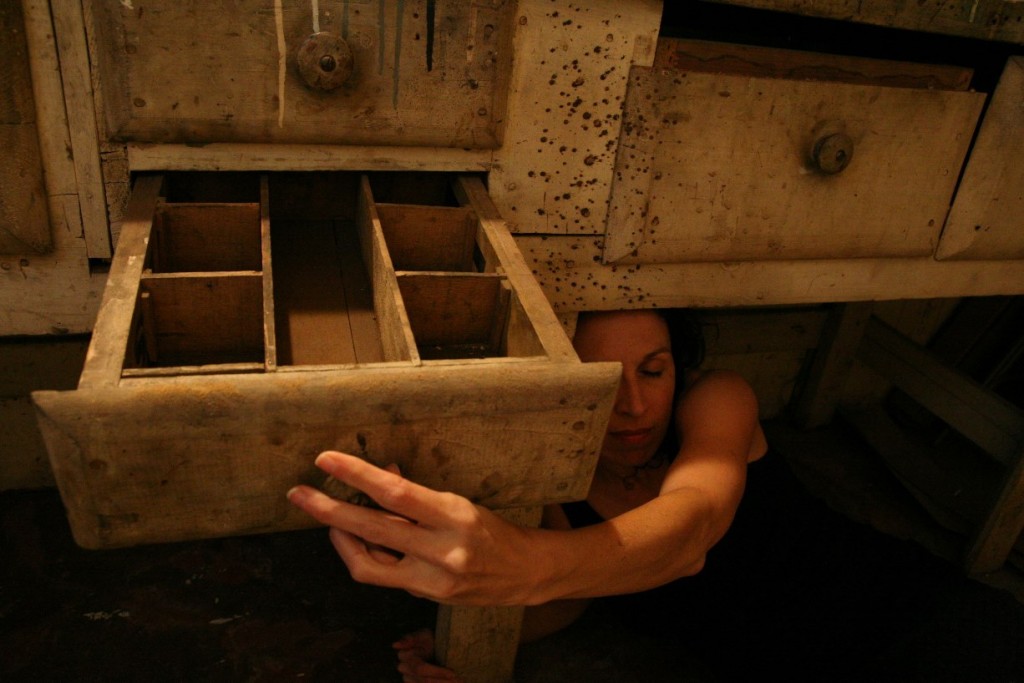
By Eze Ihenetu
I knew that he’d emphasized our similarity so that he could disarm me.
“We are both Igbo,” he’d said, through a forced smile.
My thought response: So what.
Despite our shared heritage, he and I were still adversarial strangers because he had gone back on his word. This “brother” of mine was one of the people responsible for my extended confinement to the psychiatric ward. I was not in the mood to extend any form of good will.
I positioned my wheelchair so that I was directly in front of him, and I slowly looked upward until my eyes met his. Arrogance wafted off of him like the heat from my rusted bedroom radiator.
I made ready to make my demand.
“What did I do to make you think that I should spend more time in this place?”
I waited for his answer, radiating irrational anger. I was still under acute influence of my disease, and I was still in denial of this truth.
I lost my patience when he failed to respond, which precipitated the relinquishment of my remaining composure. I bellowed up at him, “You told me that I would only have to stay here for a period of two days. That is what you said to me, right? Now you are telling me that I will have to stay here for two weeks! Two weeks?! Why are you unable to keep your word?!”
He pursed his lips. Then he folded his arms without speaking a word. Was that going to be the extent of his response to my question?
I slammed my right hand down on the wheel of my chair and said, “Promises were made to me and I should expect that you would make sure that these promises will be kept!”
I knew that arguing with the doctor was probably useless, but I needed to say my piece. One of the only positive offshoots of my disease was that I wasn’t afraid to speak my mind. I was standing up for myself in a way that I never had before. Why had I suddenly become so outspoken and brave? Because I was more than certain that I was in mortal danger.
The doctor looked as if he was staring down at a cockroach. He made ready to squash the unpleasant thing that was waiting him to answer.
“Your condition has been deemed more severe than we first thought. And we need more time to observe you,” he said. His accent was thick, more pronounced than the one my father spoke with.
“But I don’t want to have to stay here any longer. I’ve already spent two weeks at this hospital. I need to go.”
“You have been diagnosed with schizoaffective disorder, a very serious psychological condition. We have to treat you and see how you respond. You will be released when we are confident that you are showing progress.”
My heart sank.
While still within the psychiatrist’s purview, I conducted a quick reconnaissance of the dreary, monochrome, and cramped ward. It was divided into two corridors, with the nursing station acting as the point of demarcation. A half dozen uniformed police officers roamed the two corridors and manned the exits. Any attempts to cross the established border that linked the two sides would be dissuaded by the officer who acted as the border’s sentry. The police officers were obviously there to assist the clinical staff with maintaining some semblance of order, but seeing so many armed members of law enforcement cobbled together in such a constrained location rankled my nerves.
The hospital’s inmates walked among these officers, most of whom had spent almost the entirety of their lives existing on society’s edges; a portion of them had spent some time in the New York City prison system. There was a charge that ran through this place. And it could be ignited by anyone here, and at any time.
Prison stints and extended stays in hospitals had not been a part of my past. Why transfer me to this place? If the hospital would have performed some research they would have discovered that I was a graduate of the Boston University School of Business, a trained professional actor, and came from a good family. Every member of my family had either graduated from college or was planning on matriculating into a university. I knew that I didn’t belong in this place, but the gatekeepers who held the keys to freedom obviously thought differently.
“Whatever,” I said, shaking my head.
Now he was looking at me as if he was ashamed. I wanted to dig my fingernails into his sand-colored face and add a few more divots to the hundreds that had already ruined it. I steered my wheelchair away from the doctor in a huff instead, making sure to hold my breath as I passed by the open door of the room that stank of urine and cigarettes.
•••
When it was time for sleep, I lay awake on my hospital bed instead, my diagnosis bouncing around my head.
To his credit, the psychiatrist had tried to take away some of the sting of this life-long sentence when putting forth his diagnosis, saying that I was susceptible to periods of mood instability and mania, and that I was not the only one who was suffering from that particular disease. That explanation was lost on me though, for all I could focus on was the word “schizoaffective” and all of the horrific images that my mind was associating with the term.
Momma had always said that I was the special man in her life. I’d thought that I was special too, believing at one time that I was gifted with a special insight into the whims of others. The psychiatrist had taken the wind out of that sail by handing down the life sentence. If I were to believe the doctor’s words, then it would mean that my extra-sensitive perspicacity was a stain instead of a gift. This fact alone had a shattering effect on my confidence. The diagnosis, in addition to the fact that I was the only person on the unit who was sporting a cast around a recently repaired broken leg, made me feel very vulnerable. When the pain from this realization became too much I stopped resisting the pill, and downed the twenty milligram Zyprexa for the first time.
•••
I awoke later than usual the next day, unable to raise my head from the pillow. I attempted to move my limbs but was unable to because it felt as if the muscles and bones had been filleted from the inside of my skin. My mind was covered in a fog. After a few minutes I was on the verge of tears, thinking that I was going through the first stages of my death.
By early afternoon I realized that I’d overreacted in the morning. My condition was improving slightly with the passage of each subsequent hour. By late afternoon I was sure that I was going to live, though I would remain mired in a Zyprexa-induced stupor for the rest of the day. I went to bed on an empty stomach in the early evening—I’d been too tired to eat anything during that day—vowing never again to ingest another Zyprexa pill before closing my heavy eyelids.
I was myself again the next morning, although still a bit groggy from the day before. My roommate, who stood at an imposing six feet three inches and weighed two hundred fifty pounds, was still soundly asleep in his bed. He had been a docile fellow during the time I’d known him, a fact for which I was extremely grateful.
I exhaled a breath before I sat up and swung my legs from the bed onto the hospital floor, an action that required an inordinate amount of exertion. I encircled the circumference of my wrist with my hand and gasped in surprise—my wrist was replete with bony protrusions. Distraught from my extreme weight loss, I slid down from my bed until my butt hit the floor, then got down on all fours and started some push-ups. I maxed out after ten repetitions and stayed on the floor for few minutes, exhaling deeply. After catching my breath, I pushed myself off from the floor and got to my feet and used my good leg to hop on over to the foot of my bed, where my wheelchair was waiting for me. The light from the corridor was spilling into the open doorway. I steered the wheelchair towards it.
•••
Mental illness is defined by its abnormalities and vicissitudes; the functioning of the mind and body is thrown into complete disarray. One clinician’s proffered reason for this instability was an ongoing “disconnection” between brain cells. His words felt abrasive and accusatory. It was “you” are this and “you” are that. I bristled at the explanation. He had basically asserted that I was the only one responsible for my condition. He’d made no mention nor alluded to other factors that may have been contributed to my behavioral inconsistencies.
When allowed to thrive, the mental illness makes it almost impossible for the afflicted person to establish and adhere to a routine. The people who ran the psych ward made establishing a routine a vital component of the patient’s recovery. Breakfast, lunch, and dinner were served at the same times every single day—my favorite times of the day. Psychotropic medications were distributed at the same time in the mornings and evenings. There was an activity room where the groups were held, although I preferred to watch movies on cable instead of talking about my issues.
•••
Fearful that I could add even more time to my original sentence, I set out to be the good patient, going out of my way to prove that I was quiet, affable, and well behaved. I adhered to all of the standardized rules that had been set, except for the ingestion of the psychotropic medications. I’d hide the pills below the base of my tongue before making sure they met their ultimate fate at the end of each evening: circling down the drain of the bathroom sink.
I was the only patient who roamed around that wing of the hospital in a wheelchair. So I strove to avoid getting into any type of confrontation with the other denizens of this crazy place. My leg always drew attention to me though—the entire bottom half of it was encircled by a neon green cast. The others couldn’t help but be curious about what happened.
When the other patients asked what had happened to my leg I responded to their questions with most of the truth, one that was in direct contradiction to the story that I’d relayed to my care team. I’d told my care team that I’d tried to kill myself because I thought it was what they wanted to hear, and because I was trying to escape being branded with a more severe diagnosis.
Killing myself hadn’t been an option because I was afraid of the consequences. Although I wasn’t a devout Catholic, I was cognizant of the fact that taking my life would result in my being transported to hell for an eternity. And for a man who had been walking along the path that God had created for him, suicide was not a viable option.
•••
What were the actual events that had led to my hospitalization?
I’d locked myself in my room during the last few days of December, 2003, my brain on fire with delusions of persecution and conspiracy. I would try to douse the fire by spending time alone in the darkness, removed from everything and everyone. But the conflagration in my mind would only become more incensed.
My bedroom became a dark cave. The air in the room became stale, but I was content to breathe it in. During those two days I hardly shifted positions while supine in my disheveled bed, staring up into the darkness, while the paranoia, anger, and sadness gripped me. My bedroom, a shambolic mess, was the embodiment of disorganized thoughts.
Mom, Dad, and other family members kept on calling. Their calls brought short stints of reprieve from the loneliness and isolation and provided me with a temporary reminder of who I was. I wouldn’t return their phone calls though. I’d ignore my roommate’s entreaties about my health and eschewed the phone calls of the friends I’d made. I suspected everyone that I knew was working for my enemies.
After I decided that it would become untenable for me to remain in my room for perpetuity, I devised a plan—it was emblematic of my desperation. I jumped up from the bed to dress and gather everything that I could carry, then entwined three sets of sheets together, creating a makeshift rope. I tied one end of the rope to the radiator, parted the curtains, and opened the window. I adjusted my eyes to the sun and threw the makeshift rope through the open window.
I looked down the length of the sheet as it swung to and fro and against the brick wall of the four story apartment building. There were three stories separating me from the concrete floor below, the makeshift rope spanning the length of about two of those stories. No problem. I would scale down the first twenty feet of rope before attempting to jump the last ten.
I was still three stories above the ground when the rope snapped, leaving me to fall the rest of the way. When I crashed down on the cement street that had been made harder and colder by the sub-freezing temperatures, the wind escaped from my lungs. I couldn’t make a sound, but my entire body was screaming from the pain.
When I regained my wind from the fall and the wracking pain had morphed into dull and persistent throbbing, I took inventory of my current situation. The paraphernalia that I’d been hauling on my back was strewn all across the alley way, but my body seemed to be intact at first glance.
My mind was still feverish, and I desperately needed to get away. I thought I could miraculously walk away from this catastrophic fall; I started the process of gathering my things together when I noticed that my right leg was bent back awkwardly. There was also a rip in my jeans, from which escaped the calcified bone of my knee. Blood was upwelling through the hole that had been made by the exposed knee bone, and spilling down the sides of my jeans.
I burst out crying at the sight of my new deformity before desperately flagging down a startled passerby.
“Can you please help me?” I said, sobbing. “Please, please help me.”
•••
I told the story of how I arrived at the facility in Daniel’s room. Daniel, a bearded and excitable young man who had spent a significant amount of time in hospitals, rolled his eyes after I had completed my tale of woe.
“Come on, man,” he said. “That’s nothing. One time I got fucked up so bad that I had to spend four months in a hospital bed.”
Geoffrey, a large man with two missing front teeth, was sitting next to me. Like my roommate, he was a gentle and calm; a smile came easily to him. His wide grin and kindness were gifts of welcome respite from a continuous flood of despair. If you were to run into Geoffrey on the street, you would never have guessed that he was a schizophrenic who had spent six years in a real New York City prison facility.
•••
Geoffrey was with me when my father arrived for his visitation. Dad’s wide eyes revealed his absolute shock at my appearance: I’d sustained a nasty shiner in addition to the broken leg and weight loss. His reaction upon first seeing me in the hospital distressed me, though it wasn’t a surprise. Nothing could have prepared him for the sight of his first-born being confined to a wheelchair, body broken and spirit twisted by demons both real and imagined.
My father’s visit proved to be my saving grace. His presence provided a temporary uplift for my spirit and acted as a precipitating event. A few of the ward’s employees had developed a fondness for me during my confinement; their eyes practically lit up at the sight of the family reunion. The hospital staff knew that my father—dressed in a plaid jacket and carrying a briefcase—would act as my responsible guardian, which placated their concerns about my well-being when I was eventually released from the hospital. There was an up-swelling of hope within me that felt foreign, which contributed to the ward feeling a lot less dreary and depressing on that day.
Dad’s visit had the opposite effect on Geoffrey, though. We were hanging together, watching the first Pirates of the Caribbean movie—the best of the five—in the activity room when he let out a sigh and said, “That’s cool that your dad came out all this way to see you. My family lives right here in the city and ain’t none of them came out to see me.” I could only respond to my friend Geoffrey with silence because I was too absorbed in my thoughts and situation to really consider what he was saying.
•••
A week and a half had passed without my having been involved in some major incident on the floor, another fact for which I was extremely grateful. And I was actually starting to get used to life on the ward. I had settled into the prescribed ward routines and had made a few friends/acquaintances. With only a few days remaining until my release, I was thinking that I might escape this place without accruing any additional scars.
And then my roommate lost his shit one night.
He took offense to something that was said by a visiting nurse, cursed her out, and then spat at her face from a supine position on his bed. One of the officers on duty rushed to the aid of the nurse who’d just been assaulted. I was thankful that the roommate seemed to calm as the dreadlocked and bulky cop firmly established himself at the nurse’s right flank. As I watched the situation quickly unfold, I felt as if I’d experienced whiplash. What would possess a usually docile and gentle man to assault someone in a manner that was vile, and in a place where immediate repercussions would be meted out?
The incident with my roommate, the loss of my job and girlfriend, and other things weighed on my mind when I went before the clinical team/parole board to discuss my progress as a patient. My fellow Igbo man had been given a seat at table. His inclusion in that group would have made me clam up a few days ago. I became a puddle a tears and snot on that day, though, oblivious to the judgments and affirmations of the people who watched me in that room.
•••
It wasn’t until I was given access to my clothes and phone again that I became truly secure in the fact that I was finally leaving the hospital that had been my home for the past month. I found Geoffrey in his room so that I could say goodbye. When I reached up to shake his hand, he said, “I don’t ever want to hear that you have come back to this place.”
I responded firmly. “I promise that I won’t.”
•••
Thirteen years have passed since I left the hospital. I remain a healthy, contributing member of society, who seems to have discovered the perfect formula for managing a chronic precondition—lower doses of psychotropic medicines are an important part of this formula. I’ve secured a master’s degree in health administration, and I’m up for a promotion with the employer with whom I have enjoyed my longest tenure. Those dark days from thirteen years ago have faded to the rearview of my life’s journey, but I still think about Geoffrey every single day.
I hope that he has been able to carve out a life for himself, though I am not optimistic that he has. He and I may have been two mentally ill individuals who’d gotten to know each other for two weeks in the same psychiatric ward, but I was blessed with certain advantages that would make it easier for me to regain the life that I’d nearly lost. Education, a loving family, and the absence of a criminal record all worked in my favor. Geoffrey would have to make his way in the world absent of the advantages that I had. And given the fact that he was a black man, which is a state of being that diminishes one’s prospects for success in society even when you are educated and healthy, his situation is very precarious.
I wish that there were some way to find out that he is all right.
•••
EZE IHENETU is a hospital worker and freelance writer living in Denver, Colorado. Once a teacher and an actor, Eze is confident that writing will be the last stop on his long professional journey. He is currently working on a memoir about his time as an elementary school teacher. You can reach him on twitter at @Eihenetu.

 Follow
Follow


